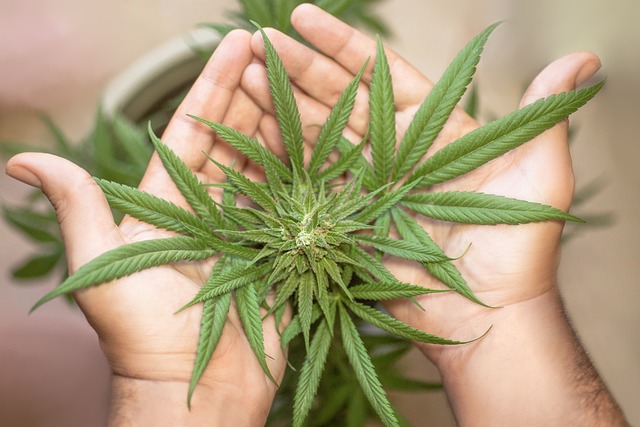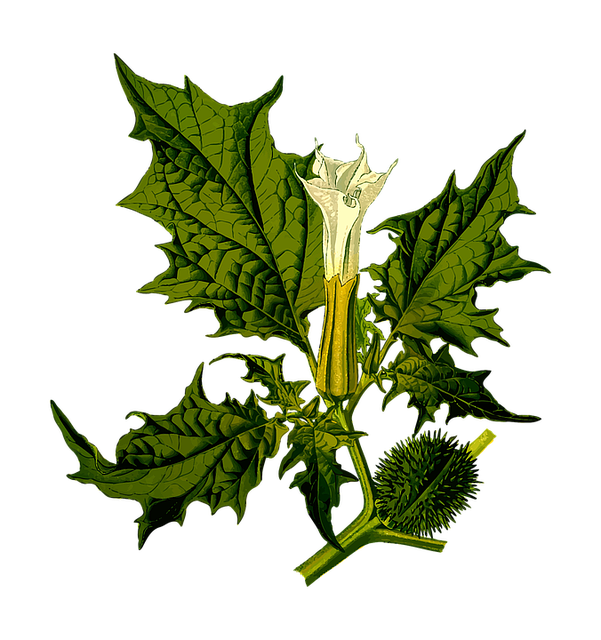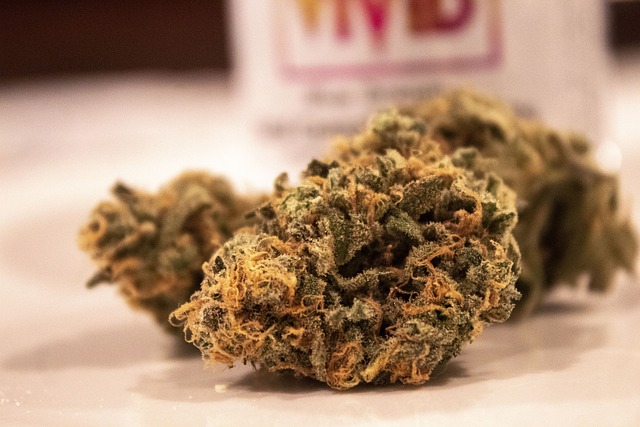In California, THCA (Tetrahydrocannabinolic Acid), the non-psychoactive precursor to THC, has gained significant traction as a trending cannabinoid due to its unique effects and potential health benefits. With the Golden State's pioneering role in shaping cannabis culture and legislation, including the legalization of medical and adult-use cannabis, THCA's emergence is a testament to its growing popularity. Unlike THC, THCA offers users an uplifting, clear-headed experience and is valued by medical patients for its therapeutic properties, which include anti-inflammatory, neuroprotective, and analgesic effects, based on preliminary studies. THCA's legality in California under Proposition 64 allows for the possession, cultivation, and use of raw cannabis containing THCA, distinguishing it from psychoactive THC. This has led to a specialized market for THCA flowers and derivatives within the state's regulated framework, positioning THCA as a significant component of California's evolving cannabis industry, with ongoing research set to further elucidate its efficacy in holistic health practices. Despite this, it's important to note that under federal law, cannabis remains classified as a Schedule I substance, highlighting the nuanced relationship between state and federal regulations regarding cannabis derivatives like THCA.
Exploring the nuanced world of cannabinoids, this article delves into the rising phenomenon of THCA flower, a non-psychoactive compound garnering attention for its potential therapeutic properties and unique experiences. As California continues to pioneer in the cannabis industry with THCA’s legal status paving the way, understanding its science, cultivation, and consumption is paramount for enthusiasts and newcomers alike. From the effects of temperature on its conversion to THC, to the variety of strains available, this comprehensive guide navigates the intricacies of THCA flower within California’s evolving legal landscape. Join us as we unravel the potential of THCA in California’s cannabis market and explore user experiences that highlight its distinct role in well-being and recreational use.
- THCA Flower: An Overview of Its Rise in Popularity in California
- The Science Behind THCA: Potential Benefits and Effects
- Legal Landscape: THCA's Status in California Explained
THCA Flower: An Overview of Its Rise in Popularity in California

California has been at the forefront of cannabis culture and legislation, particularly with the legalization of both medical and adult-use cannabis. Within this burgeoning market, THCA (Tetrahydrocannabinolic Acid) flower has gained significant traction among consumers and enthusiasts alike. Unlike its psychoactive counterpart THC (Tetrahydrocannabinol), THCA exists in its raw, non-psychoactive form found in fresh cannabis plants. As of recent years, with the advent of THCA legal in California, the interest in this cannabinoid has soared. The appeal lies in its potential benefits and unique effects, which some users report as being clear-headed, uplifting, and energizing. This has led to an increase in cultivation practices specifically aimed at preserving THCA in its natural state, offering a new dimension of the cannabis experience.
The rise in popularity of THCA flower can be attributed to both consumer curiosity and a growing body of anecdotal evidence suggesting its potential therapeutic properties. Users often decribe its effects as being grounding and soothing without the intoxicating ‘high’ associated with THC. This has opened up new avenues for medical cannabis patients looking for alternative relief options. Additionally, the legal landscape in California has evolved to support this trend, with dispensaries across the state offering a variety of THCA flower strains. As awareness and acceptance grow, it’s anticipated that the prominence of THCA flower will continue to expand within the cannabis community, further cementing its place as a significant player in California’s legal cannabis industry.
The Science Behind THCA: Potential Benefits and Effects

Cannabidiolic acid (THCA) is a non-psychoactive compound found in the Cannabis sativa plant, which, when heated, converts into THC, the primary psychoactive component of cannabis. Despite its association with psychoactive effects through its derivative THC, THCA itself holds potential therapeutic benefits that are gaining scientific interest. Preliminary research suggests that THCA may offer a range of health advantages without the ‘high’ associated with its decarboxylated form. Studies indicate that THCA could exhibit anti-inflammatory, neuroprotective, and analgesic properties, making it a subject of ongoing research for various conditions including pain management, inflammation reduction, and as a potential neurotherapeutic agent.
The legal landscape regarding cannabinoids is evolving, with THCA being at the forefront of this change. In California, where both medicinal and recreational use of cannabis are legally sanctioned, THCA’s legal status aligns with these progressive policies. Consumers in California can legally access THCA-rich products, provided they comply with state regulations. This has led to a burgeoning market for THCA flowers and other derivatives, as individuals seek out the potential wellness benefits of this cannabinoid without the psychoactive effects of THC. As research continues to uncover more about THCA’s efficacy and applications, its role in holistic health practices and therapeutic interventions may expand, further solidifying its place within the legal cannabis market, particularly in states like California that have paved the way for such innovations.
Legal Landscape: THCA's Status in California Explained

In the United States, the legal status of THCA, or Tetrahydrocannabinolic Acid, a non-psychoactive precursor to THC found in raw cannabis, has been subject to state-specific regulations. As of the knowledge cutoff date, California’s approach to THCA reflects its broader stance on cannabis: regulated and legal under certain conditions. The California legal landscape for THCA is nuanced, with the compound being legal as part of the raw plant material. Under Proposition 64, also known as the Control, Regulate, and Tax Adult Use of Marijuana Act, adults aged 21 and over are allowed to possess, cultivate, and consume cannabis and cannabis products that derive from flower that has not been heat-activated to transform THCA into its psychoactive form, THC. This distinction is crucial for consumers and producers who wish to engage with the non-psychoactive properties of THCA for wellness or other purposes without the psychoactive effects associated with THC. It’s important for users to be aware of the local laws and regulations that govern the use and possession of cannabis and its derivatives, including THCA in California, as federal law still classifies cannabis as a Schedule I substance, despite state-level legalization efforts.
THCA, or Tetrahydrocannabinolic Acid, has emerged as a topic of significant interest within California’s diverse cannabis landscape. This article has explored the multifaceted nature of THCA, from its burgeoning popularity to the scientific underpinnings that highlight its potential benefits and effects. As we’ve seen, THCA’s legal status in California has been clarified, with regulations outlining its use and possession, which is crucial for public health and safety. Understanding THCA’s legal standing in the Golden State is essential for both consumers and industry stakeholders, ensuring compliance and informed decision-making. As research continues to evolve, so too will the understanding and utilization of THCA flower, marking an exciting chapter in California’s ever-evolving cannabis narrative.
